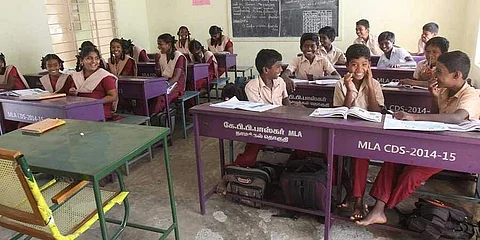

Meetings to implement the National Education Policy (NEP) 2020 in pre-primary schools have already commenced as members of the policy’s preparation team invited parents' opinions.
On December 17, several parents were allowed to voice their opinions and give insights into what issues could be resolved under the NEP implementation. The members focused on what parents look for in a preschool, what improvements could be made to the current system of education and whether children required support at home. This is following Primary and Secondary Education Minister BC Nagesh’s announcement that NEP would be rolled out phase-wise in schools starting from 2022. During the winter session of the state legislature, he said that NEP would be implemented in select pre-primary schools in the coming academic year.
Parents from several schools around Bengaluru, including Rashtrotthana Vidya Kendra, Thanisandra, spoke on various issues that plagued their children, especially after the opening of schools after lockdowns. “For my child, as she had started offline school for the first time, she was very overwhelmed because she had not interacted with other students previously,” said Poorna Shilpa, one of the parents. Many of the parents had faced similar lockdown-related issues, as another parent, Padmasree, mentioned that she had difficulty limiting screen-time for her child. “Students would benefit if they were encouraged to go to libraries and read books, and move away from phones and limit screentime,” she said.
Another parent, Neeharika Arvind, said that she had noticed a big difference between offline and online classes as children could take part in personal interactions and have more learning opportunities and moral lessons when it came to sharing and other activities. Parents also said that the students would grasp concepts faster when teachers focused on students’ interests.
A number of the parents also expressed interest in bringing back more traditional learning and games for students during playtime. Shveta Swamy, another parent, said, “We’re very happy with how moral based learning has been implemented, however improvements on playtimes can be done, formalising it so that children aren’t left to their own devices to find something to do, rather the school provide activities for them.”
Anupama Sathiya, a member of the NEP position papers preparation team, taking note of the parents suggestions said, “It’s very necessary for us to register the parents opinions as they are as much a part of the education process as schools and institutions are, they are vital collaborators.”
